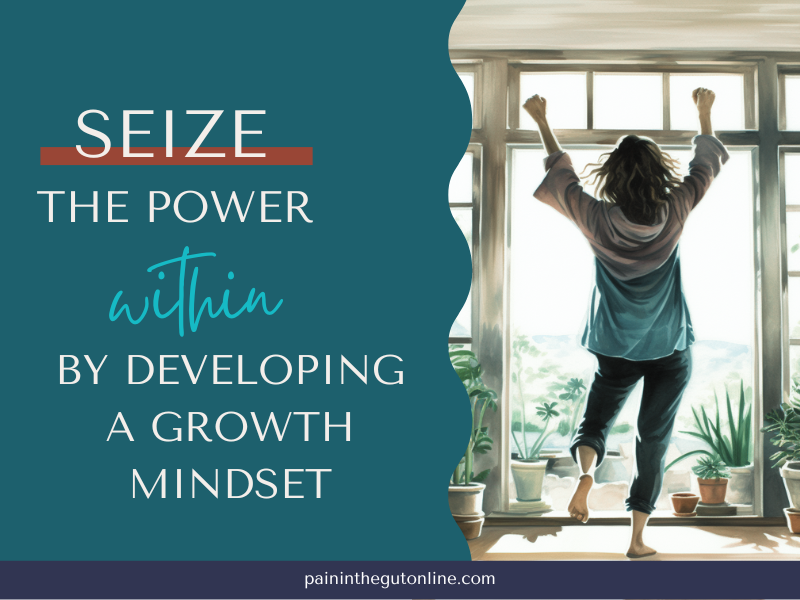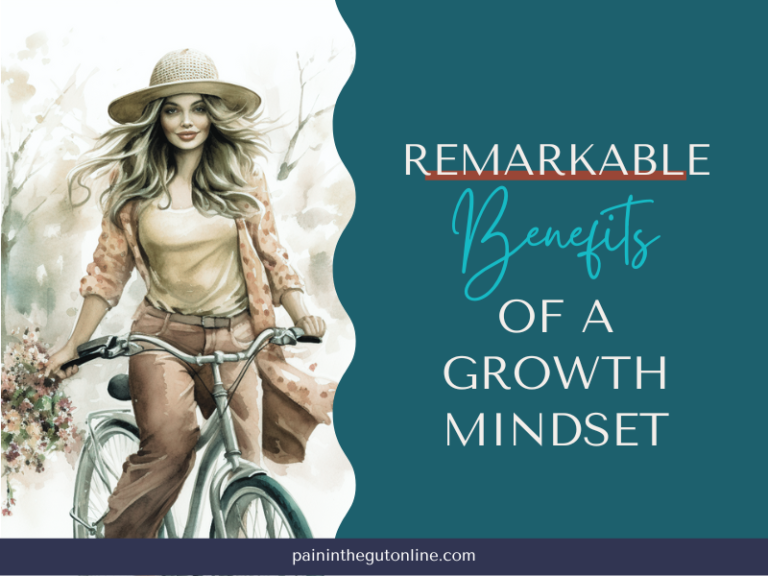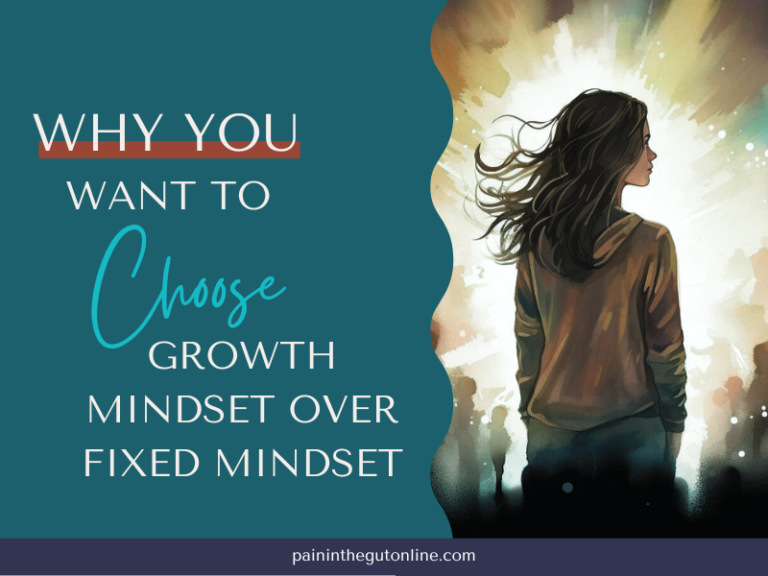DEVELOPING A GROWTH MINDSET
7 min read/ 1,417 words
Unlock your true potential by developing a growth mindset for health goals. Embrace challenges, cultivate resilience, and achieve lasting transformation.

Table of Contents
Understanding a Growth Mindset
To embark on a journey of personal growth and achieve your health goals, it’s important to understand the concept of a growth mindset.
A growth mindset refers to the belief that abilities and skills can be developed and improved over time, as opposed to being fixed or predetermined.
By adopting a growth mindset, you can unlock your potential and cultivate a mindset that fosters motivation, resilience, and a willingness to take on challenges.
Definition of a Growth Mindset
A growth mindset, as defined by WeWork, is the belief that one’s abilities and intelligence can be cultivated through dedication, effort, and a willingness to learn. It is about embracing challenges, persisting in the face of setbacks, and seeing failure as an opportunity for growth.
Individuals with a growth mindset understand that they can improve their skills and achieve their goals with hard work, practice, and the right strategies.
Benefits of Developing a Growth Mindset
Developing a growth mindset offers numerous benefits when it comes to pursuing your health goals.
According to Harvard Business School Online, individuals with a growth mindset are more likely to embrace challenges, learn from feedback, and develop resilience in the face of obstacles.
Here are some key benefits of cultivating a growth mindset:
- Motivation and Resilience: With a growth mindset, you are more likely to stay motivated and resilient even when faced with setbacks or difficulties. Instead of giving up, you see challenges as opportunities for growth and improvement.
- Openness to Learning: Individuals with a growth mindset naturally enjoy learning and seek out new knowledge and skills. This openness to learning allows you to continually expand your understanding of health and wellness, making it easier to adapt and make positive changes.
- Effort and Persistence: Seeing effort as a path to mastery is a fundamental aspect of a growth mindset. Embracing this belief, you are more likely to put in the necessary effort and persist through challenges, knowing that hard work and dedication can lead to progress and success.
- Improved Performance: By adopting a growth mindset, you open yourself up to continuous improvement. You are more likely to seek feedback, learn from criticism, and refine your strategies, ultimately leading to improved performance in your health goals.
- Greater Resilience: A growth mindset helps you develop resilience, allowing you to bounce back from setbacks and keep moving forward. Rather than being discouraged by failures, you view them as stepping stones to success and learn from them.
By understanding and embracing a growth mindset, you can set the stage for personal growth and achieve your health goals.
It’s important to remember that developing a growth mindset is a journey that requires continuous effort and self-reflection. To learn more about activities and techniques for developing a growth mindset, refer to our article on growth mindset activities.
Cultivating a Growth Mindset
There are various techniques and strategies you can use to develop a growth mindset.
You can shift your beliefs and behaviors to foster personal and professional growth by actively cultivating a growth mindset.
Techniques for Developing a Growth Mindset
- Embrace Challenges: View challenges as opportunities for growth rather than obstacles. Embracing challenges allows you to expand your abilities and learn new skills. Seek out tasks that push you out of your comfort zone and encourage continuous learning.
- Persist in the Face of Setbacks: Develop resilience by persevering through setbacks and failures. Understand that setbacks are a natural part of the learning process. Rather than getting discouraged, use setbacks as opportunities to learn, adapt, and improve.
- See Effort as a Path to Mastery: Adopt the mindset that effort and hard work lead to mastery. Recognize that skills and abilities can be developed through dedication and practice. Embrace the process of learning and understand that progress may take time.
- Learn from Criticism: Instead of avoiding or rejecting criticism, use it as a valuable source of feedback and growth. See criticism as an opportunity to learn and improve. Reflect on the feedback received, identify areas for development, and take constructive action.
- Find Inspiration in Others: Look to successful individuals as role models and sources of inspiration. Learn from their journeys, successes, and failures. Surround yourself with a supportive network that encourages growth and provides guidance.
For more growth mindset activities and strategies, explore our article on growth mindset activities.
Shifting Beliefs and Behaviors
To cultivate a growth mindset, shifting your beliefs and behaviors is essential.
Here are some key steps to help you make this transformation:
- Self-Reflection: Start by reflecting on your current mindset and identifying any fixed beliefs or self-limiting thoughts. Recognize that your abilities and intelligence can be developed with effort and dedication.
- Embrace Learning Opportunities: Seek out opportunities to learn and grow. Embrace new experiences and challenges that allow you to expand your skills and knowledge. Approach tasks with a curiosity to learn rather than a fear of failure.
- Challenge Negative Self-Talk: Pay attention to your inner dialogue and challenge any negative self-talk or self-doubt. Replace negative thoughts with positive and empowering affirmations. Remind yourself that mistakes and failures are growth opportunities.
- Set Realistic Goals: Set realistic and achievable goals that align with your growth mindset. Break larger goals into smaller, manageable steps. Celebrate progress along the way and recognize that setbacks are temporary obstacles.
- Seek Support and Collaboration: Surround yourself with individuals who share a growth mindset and support your personal and professional development. Collaborate with others, share ideas, and learn from their experiences. Engage in discussions and seek feedback to gain different perspectives.
By implementing these techniques and embracing a growth mindset, you can transform your approach to personal growth and development.
Remember, developing a growth mindset is an ongoing journey that requires dedication and self-reflection. With time and practice, you can unlock your full potential and achieve higher levels of success.
The Lifelong Journey of a Growth Mindset
Developing a growth mindset is a lifelong journey that requires self-awareness, continuous learning, and a dedication to personal and professional growth. It is an ongoing process that empowers you to embrace challenges, overcome obstacles, and achieve your health goals.
If you’d like to learn more about growth mindset, check out this article – growth mindset over fixed mindset.
Let’s explore two key aspects of this journey: self-awareness with continuous learning and dedication to personal and professional growth.
Self-Awareness with Continuous Learning
Self-awareness is a critical component of developing a growth mindset.
It involves recognizing your strengths, weaknesses, and areas for improvement. By being aware of your thoughts, emotions, and behaviors, you can identify any fixed mindset tendencies and work towards shifting them to a growth mindset (Personatalent).
Continuous learning is a core principle of a growth mindset.
It involves seeking out new knowledge, acquiring new skills, and staying open to different perspectives. Engaging in activities such as reading books, attending workshops, or taking online courses can expand your understanding and keep your mind receptive to growth opportunities (Believe in Mind).
Platforms like Alison offer a wide range of enriching courses that can support your growth journey and help you develop new skills and knowledge (LinkedIn).
Dedication to Personal and Professional Growth
To cultivate a growth mindset, it is essential to dedicate yourself to personal and professional growth.
This involves setting goals, seeking feedback, and taking purposeful actions to improve. By setting specific, measurable, achievable, relevant, and time-bound (SMART) goals, you can create a roadmap for your growth journey.
Regularly reassessing and adjusting your goals can help you stay on track and ensure continued progress.
Seeking feedback from others is another vital aspect of personal and professional growth. Feedback provides valuable insights into your strengths and areas that require improvement.
Embrace feedback as an opportunity for growth and use it to enhance your skills and abilities. Remember, constructive criticism is an opportunity to learn and develop rather than a reflection of your worth.
Dedicating yourself to personal and professional growth also involves adopting a growth mindset in your everyday life.
Embrace challenges as opportunities for growth, persist in the face of setbacks, and maintain a positive outlook.
Surround yourself with individuals who support and inspire your growth journey, fostering collaboration and collective intelligence (LinkedIn).
By prioritizing self-awareness, continuous learning, and dedication to personal and professional growth, you can embark on a lifelong journey of developing and nurturing a growth mindset.
Remember, it may not always be easy, but the rewards reaped from cultivating a growth mindset can enrich your life in unexpected and transformative ways.







